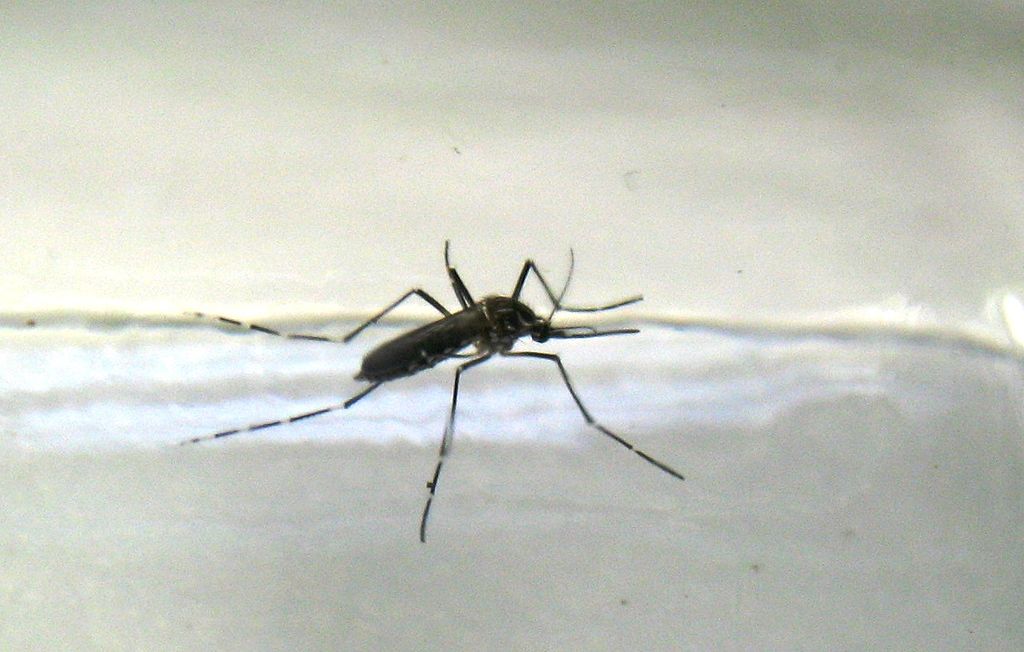
An international consortium has mapped differences in the antigenic properties of dengue viruses.
We were surprised at how much variation we saw not only between the existing four known types of dengue, but also within each type. This means that hypotheses that put antigenic differences at the centre of dengue epidemiology are now back on the table.
Leah Katzelnick
An international consortium of laboratories worldwide that are studying the differences among dengue viruses has shown that while the long-held view that there are four genetically-distinct types of the virus holds, far more important are the differences in their antigenic properties – the ‘coats’ that the viruses wear that help our immune systems identify them.
An article on their research is published in Science magazine and Gates Cambridge Scholar Leah Katzelnick is first author.
Dengue virus infects up to 390 million people each year. Around a quarter of these people will experience fever, headaches and joint pains, but approximately 500,000 people will experience potentially life-threatening complications, including haemorrhage and shock, where dangerously low blood pressure occurs. There are currently no vaccines against infection with dengue virus.
For decades, scientists have thought that there are four genetically-distinct types of the virus, known as serotypes, and that antigenic differences between the types play a key role in the severity of disease, its epidemiology and how the virus evolves – and hence these differences would be important in vaccine design.
When humans become infected, their immune system sends out antibodies to try and identify the nature of the infection. If it is a pathogen – a virus or bacteria – that they have previously encountered, the antibodies will recognise the invader by antigens on its surface and set off a cascade of defences to prevent the infection taking hold. However, as pathogens evolve, they can change their antigens and disguise themselves against detection.
One of the unusual aspects of dengue is that in some cases when an individual becomes infected for a second time, rather than being immune to infection, the disease can be much more severe. One hypothesis to explain this is that the antibodies produced in response to infection with one strain of the virus somehow allow viruses of a different strain to enter undetected into cells, implying that antigenic differences between the serotypes are important.
Researchers from the Dengue Antigenic Cartography Consortium analysed 47 strains of dengue virus with 148 samples taken from both humans and primates to see whether they indeed fit into four distinct types. The researchers found a significant amount of antigenic difference within each dengue serotype – in fact, the amount of difference within each serotype was of a similar order to that between the different types. This implies that an individual infected with one type may not be protected against antigenically different viruses of the same type, and that in some cases the individual may be protected against some antigenically similar strains of a different type.
Leah Katzelnick [2012], a researcher from the Department of Zoology at the University of Cambridge, who began studying dengue after herself contracting the disease, says: “We were surprised at how much variation we saw not only between the existing four known types of dengue, but also within each type. This means that hypotheses that put antigenic differences at the centre of dengue epidemiology are now back on the table.”
Senior author Professor Derek Smith, also from the Department of Zoology at Cambridge, adds: “This discovery is in many ways similar to when researchers first began using the microscope – it will give us a new way of looking at dengue and in much closer detail than before. Now we can ask – and potentially answer – the interesting questions about how the virus evolves and, importantly, why a first dengue infection is often mild while many second infections are life-threatening.”
Characterising the global variation of dengue viruses will be important for understanding where current vaccines will be protective. In the future, it may assist us in determining which strain to include in vaccination programmes and to follow the virus as it evolves, say the researchers.
The Dengue Antigenic Cartography Consortium is an open, global collaboration of dengue researchers set up in 2011 to establish how large samples of dengue isolates relate to one another antigenically. The Consortium currently consists of epidemiologists, clinicians, geneticists, cartographers, molecular biologists, government officials, and vaccine developers, based in laboratories in Africa, the Americas, Asia, Europe, and the Pacific. As results from the project become available, they are shared with members of the Consortium.
*Picture credit: By ProjectManhattan (Own work) [CC BY-SA 3.0 (http://creativecommons.org/licenses/by-sa/3.0)], via Wikimedia Commons.












